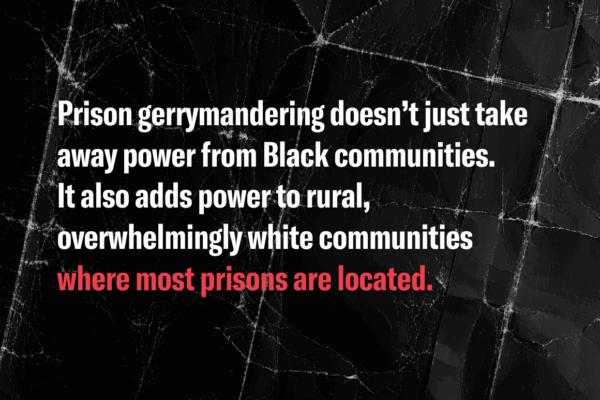The 2020 census data is in, and Virginia’s newly created redistricting commission will use it to re-draw district lines based on population changes over the last 10 years. District lines are all about political power – who has representation in our government and who doesn’t. It’s a tedious, complicated process, and the outcome will determine whose votes carry the most weight.
Population matters when it comes to redistricting, and that's why the way people are counted is so important. So how do prisons and the people in their custody impact the redistricting process?
The Census Bureau provides options for people with non-permanent addresses to be counted – unless you’re incarcerated. The census does not recognize the home address of people who are incarcerated, even though they are not living away from their communities by choice. Instead, the census only counts an incarcerated person’s prison address as their home. And, even though people stay in Virginia prisons for an average of only 2.8 years, the district lines based on population rates will stand for a decade.
Using the prison address for incarcerated people rather than their home districts is called “prison gerrymandering.” It transfers political power from areas without prisons (mostly urban and suburban) to areas with prisons (mostly rural and overwhelmingly white communities).
Virginia’s incarceration rate is worse than most other states and plagued with racial disparities. Black Virginians make up less than 21% of our total population but 56% of our incarcerated population. Black people are over-policed, are more likely to be arrested, and receive harsher sentences than white people. These racial disparities mean that prison gerrymandering dilutes the political power of Black communities more than any other group.
But prison gerrymandering doesn’t just take away power from Black communities. It also adds power to rural, overwhelmingly white communities where most prisons are located. For example, nearly 13% of Buckingham County’s population is incarcerated and ineligible to vote. The other roughly 17,000 residents of Buckingham County – many of whom work for the prison system – get additional representation in our governments for that 13% of incarcerated folks who can’t participate in the democratic process. It means that elected representatives are beholden to correctional officials and have no incentive to fight for people who are incarcerated. Rural areas also have incentive to build more prisons as a way to gain more political power, which further robs Black communities of their power.
If we can end prison gerrymandering, it would correct this power imbalance, increase political accountability, and remove an incentive for rural areas to build large prisons. Thanks to the hard work of many advocates, the state legislature passed a set of criteria for Virginia’s new redistricting commission that ends prison gerrymandering and requires people to be counted in their home districts. This set of criteria is being challenged in court, so we filed an amicus brief with our colleagues at the National ACLU and our friends at the League of Women Voters of Virginia (LWV-VA) and the National Black Nonpartisan Redistricting Organization (NBNRO) in support of the criteria. It is crucial that we end prison gerrymandering now so that we don’t keep diluting the political power of Black communities.

